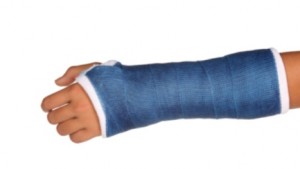Could A Blast Of Sound Help Your Bones To Heal Faster?
 When you have osteoporosis, your bones are more likely to fracture, but thanks to a new battery-powered device, you may not need surgery at all! According to the National Institute for Health and Clinical Excellence (NICE), thousands of Britons could avoid surgery for a fracture by using the gadget for 20 minutes a day at home.
When you have osteoporosis, your bones are more likely to fracture, but thanks to a new battery-powered device, you may not need surgery at all! According to the National Institute for Health and Clinical Excellence (NICE), thousands of Britons could avoid surgery for a fracture by using the gadget for 20 minutes a day at home.
Through the device, you can send pulses of ultrasound into your bone, and scientists believe this improves your wellbeing because the ultrasound kick-starts your body’s natural healing mechanisms. Government body NICE have just approved the technique for hard-to-heal fractures, which occur often in complex fractures or fractures in patients whose wellness is affected by other health problems, such as diabetes, osteoporosis, or chronic lung disease.
Over 650,000 Britons suffer a fracture every year, and around 8% of these do not heal properly. Whether it involves using a metal plate or a bone graft, many people need complicated surgery to fix the bone, and so, according to NICE, the device could save the NHS £1,164 per patient.
Usually, when your bone breaks down, your body clears away the debris and produces new bone by releasing a cascade of healing molecules. In time, the new bone becomes as strong as the original, but when complex fractures occur your bones can struggle to heal or won’t heal at all. Researchers are not sure why this happens, but it is thought that a combination of poor blood supply and suppressed healing mechanisms are involved, as well as healing-delaying factors such as smoking, high alcohol intake, long-term use of anti-inflammatories and blood-thinning medication.
Several studies indicate that ultrasound therapy can boost bone repair, one of which demonstrating a 34% reduction in healing time compared to a placebo. For 10 years or so, ultrasound has been used to treat these ‘non-union’ fractures, but patients have had to travel to a clinic or hospital to get it, until now. According to the manufacturers of the new device, known as Exogen, patients will now be able to treat themselves at home. The palm-sized gadget has a £2 coin-sized a circular probe that you place against your skin for 20 minutes every day for an average five months.
According to Angus Maclean, senior orthopaedic consultant at Glasgow Royal Infirmary, ‘By accelerating healing, there is significant potential for this technology to save money for the NHS, by reducing the need for surgery and returning patients to work more quickly than before. Cost savings and clinical effectiveness therefore make it a win-win situation for both the NHS and the patient.’

Comments are closed.